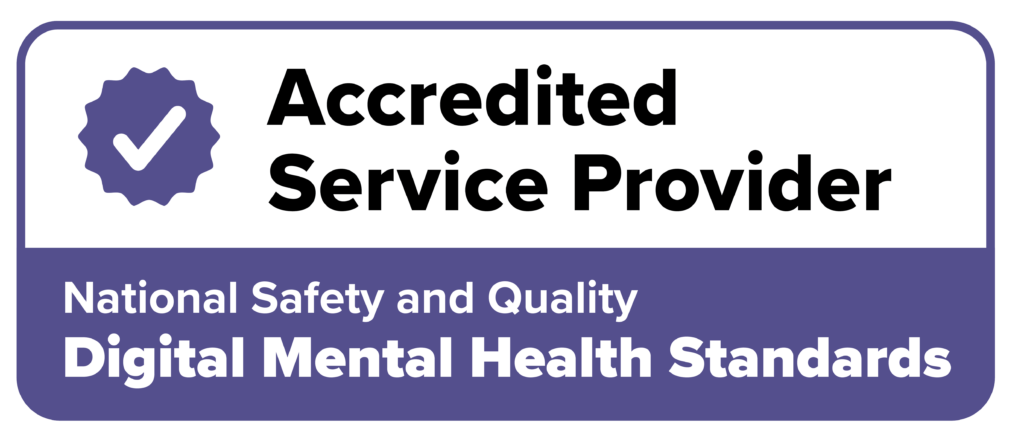When you experience trauma, you are often in fear, confused, and feeling helpless and trapped, in the moment. Your stress response is triggered, and you become agitated or shut down. You may also feel sad, angry, distressed, or anxious. Many people with trauma experiences cope well and quickly become calm again. For some people, their nervous system continues to react after the threat has passed.
Impacts
What are the short-term impacts of trauma?
Post Traumatic Stress Disorder (PTSD)
After a one-off event, some people will experience ongoing fear and panic. This can develop into Post Traumatic Stress Disorder (PTSD). Symptoms of PTSD include reliving of the trauma with flashbacks or nightmares, difficulty sleeping or concentrating, feeling emotionally numb, and/or avoiding reminders of the trauma.
It is known that 5% to 10% of people will experience PTSD at some period in their lives. It’s more common in women than men and in people with certain jobs such as soldiers in active combat or first responders. PTSD is often recognised with single incident when a person experiences violence or the threat of violence, including sexual violence. It can also be part of complex trauma as well. For most people, after a one-off event, trauma-related symptoms subside. If they go on for longer than 2-4 weeks, it is best to seek help from a doctor or counsellor, to see if it is PTSD and for support and treatment.
Treatment can include counselling or therapy as well as medication. It can also be helpful to engage in practices which can reduce stress and anxiety. These include yoga, tai chi and meditation, as well as regular exercise. It is always important to choose what suits you and what you can manage, as we are all individuals. There is no one size fits all.
Childhood Trauma
How can childhood trauma affect brain development?
Trauma experienced by a child or young person can affect the way the brain develops. Repeated exposure to traumatic events early in development leaves the brain anticipating danger and ongoing trauma. This can affect different systems of the body, including psychological and physical health. The more severe and longer lasting the childhood trauma `the more severe are the psychological and physical health consequences’ (Middleton W., in Blue Knot Foundation, 2012).
Programs for children, young people and their families are very important as intervening early can be of great benefit. However often this is not possible, and adults can experience the impacts of their childhood trauma later in life. It is important to know that it is possible to recover from even early childhood trauma as an adult with the right support. This is proven by research as well as inspirational survivor stories of recovery.
How can childhood trauma affect physical health?
Adults who have experienced childhood trauma often have a number of physical challenges. Neuroscience research shows that ongoing stress or trauma affects the structure and function of the developing brain. It also affects it chemically, releasing stress hormones over time.
High levels of stress hormones can create inflammation and can cause chronic disease. Inflammation can in turn create disease, including cardiovascular (heart and blood vessels) and autoimmune disease. Childhood trauma survivors are at increased risk of illness including heart attacks, strokes, obesity, diabetes and cancer. It is important to have regular health checks, monitor and intervene early to stay physically strong and healthy, although this is not always easy.
People who have experienced trauma often struggle to seek help. This is because of issues of safety and trust. It is common for survivors to avoid going to the doctor or caring for themselves, and this makes sense with experiences of trauma. If you are a survivor, it is important to try and find a doctor you trust and to have regular health, including checks if you can.
How can childhood trauma affect the mind (cognitive function)?
It is important for the right and left parts of the brain to work together. Childhood trauma can interrupt the connection between them. Trauma and the stress from trauma can trigger a sustained stress response and activate the brain. This can leave you hyper-aroused as well as hypo-aroused, repeatedly, over time. If you have trauma experiences you may notice that it has affected your ability to concentrate or focus, to pay attention and to make decisions. It can be helpful to understand that this is not your fault, but the effects of trauma. You may also notice some issues with your memory – not remembering or only remembering bits and pieces.
How can childhood trauma affect behaviour?
Many children with experiences of repeated childhood trauma stay on high alert and are hyper-aroused or ‘hypervigilant’. They often also live, in fear, constantly on guard, anticipating the next danger. This ‘normal’ response to ongoing threat can cause them to behave in ways which can be challenging.
Some are diagnosed with Attention Deficit Hyperactivity Disorder (ADHD), Oppositional Defiant Disorder (ODD), truancy and aggression. Often their underlying trauma is not recognised or acknowledged. Living in a state of agitation is exhausting and can cause ongoing anxiety, insomnia or difficulty relaxing. It is helpful to find ways to try and reduce stress with ongoing support.

How can childhood trauma affect emotional and mental health?
Children learn how to soothe themselves and manage big feelings when they live in safe environments with caregivers, who are attuned to their needs. Many people have not learnt these skills in childhood. As a result, many people with complex trauma experiences struggle to regulate their emotions. They may life with strong feelings of shame, self-blame and a low self-esteem. If you have feelings of shame and struggle to feel good about yourself, there is hope and help. With support you can acknowledge these feelings, understand them, and build your inner resources to help address and overcome them.
Complex trauma is common and many people experiencing it also experience mental distress. Often however the trauma underlying their distress is not identified, acknowledged, or appropriately addressed. Many trauma survivors themselves do not recognise the connection between what happened to them and how they are feeling. Nor often do those working with them.
Ninety percent of people presenting to public mental health services have experienced sexual, physical or psychological trauma (Cusack et al., 2006). Two out of three patients presenting to emergency, inpatient or outpatient mental health services have experienced childhood physical or sexual abuse (Read et al., 2005).
People with complex trauma often have a range of diagnoses, including Borderline Personality Disorder and psychotic disorders. While the diagnosis of Complex PTSD is being accepted more and is more relevant, for many survivors finding a service or practitioner to trust, feel safe with and be supported by over time is more critical for recovery. Relationships of trust, including with a therapist or counsellor and stronger support networks with friends and family can overcome the isolation many survivors experience, and start to build healthy bonds, connections and insights, which in turn can reduce mental distress and promote health and wellbeing.
How can childhood trauma affect relationships?
A young child’s world revolves around their parents or primary care-givers. Caregivers ideally provide safety, security, love, understanding, nurture and support. Interpersonal trauma in childhood interrupts secure attachment. That’s because trauma violates the child’s boundaries. This means they are not safe or respected. This can be especially damaging with primary caregivers. As a result the child, and the adult they become, can find it difficult to trust. Sometimes they can trust too easily.
When the primary relationship is one of betrayal, the child develops a negative set of beliefs. This often means they struggle with other attachments throughout life. Many survivors experience conflicted relationships and chaotic lifestyles. They often have trouble forming adult intimate relationships, as their reactions threaten to, and do, disrupt close relationships (Henderson, 2006).
Many survivors struggle with their identity, with their core sense of self and their self-esteem. Some survivors find it difficult to learn and complete their education. Or to hold down a job which matches their natural abilities. With these impacts many survivors struggle to find a sense of purpose and a meaningful role in society.
Many survivors experience frequent crises e.g. job disappointments, relocations, failed relationships and financial setbacks. This is because of the many chaotic ups and downs. This can prevent them from establishing any regularity, predictability and consistency. Many survivors function in ‘crisis mode’. This reflects their biological responses to repeated trauma. This can be exhausting and dispiriting and contribute to feelings of helplessness and hopelessness.
How can childhood trauma affect our sense of meaning?
Having been harmed by a person/people and living ‘on guard’ or ‘dissociated’ can leave a person stuck in their past trauma. Many survivors struggle to live in the present let alone to dream about or to plan for the future. Being able to hold hope and have goals is hard when life is a struggle day-to-day.
Many survivors understandably find it hard to make any meaning out of the terrible experiences of their trauma. Trauma can make us question our purpose, our identify, our beliefs, including spiritual beliefs and our faith in human nature. If you or the person you are supporting is asking a lot of these questions, it is important to understand that this is ‘normal’ in the context of interpersonal trauma. Talking often helps including exploring the issues with a trusted counsellor or therapist if you or the person wants to.






